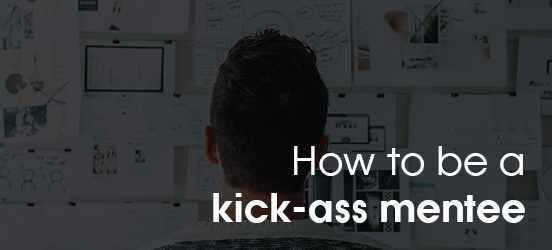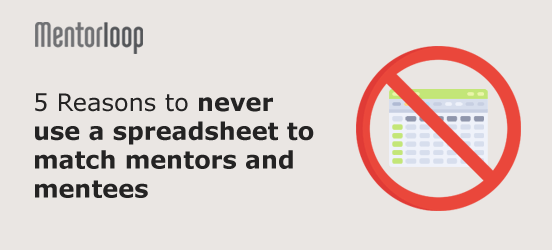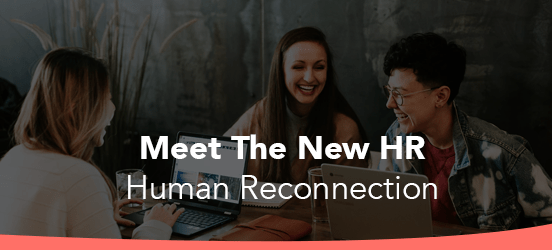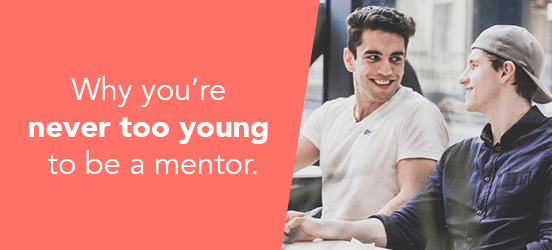- All
- Advice for Mentees
- Advice for Mentors
- Diversity & Inclusion
- Employee Engagement
- Learning & Development
- Mentoring Best Practice
- Mentoring Stories
- News
- People & Culture
- Program Management
- Remote Resources
How to Build and Run a Pilot Mentoring Program
The Key to Association Membership Retention: Creating More Value
40+ Mentoring Program Benefits You Won’t Want to Miss
Here’s How To Retain The Millennials In Your Workplace
Building and Enhancing Employee Connection Through Mentoring
From Career Break to Career Peak: The Transformative Power of Mentoring
How to Measure a Mentoring Program Effectively
Self Directed Learning Supercharged with Mentoring
5 Ways to Celebrate National Mentoring Month
Mentoring Software 101: The Basics
The Future of Mentoring Is Here: Why Mentorloop Is #1 for 2025
Are you supporting your employees in a mid-career crisis?
Using Mentoring to Improve Employee Separation Management
How to Attract Top Talent through Mentoring
Mentorship vs Sponsorship: Why it’s not just one or the other
Exploring the Best Career Path for Your Future Success
A Comprehensive Guide to Online Mentoring
Losing Talent: The Quiet Killer of Mergers and Acquisitions
Maximising Your Learning and Development Budget in 2025
Effective Strategies for Managing Remote Teams
AI’s Role in Mentoring: Enhancing, Not Replacing
Celebrate Your Mentoring Wins – Thank Your Mentor
The Benefits of Being A Mentor
Learning through Competition and Pair Programming
10 Questions You Need To Ask Yourself Before The Year End
A Mentorloop mentoring specialist’s guide to mentoring challenges
How to Champion Mentoring in your Organization
10 Reasons your L&D programs are boring – and what you can do to fix them.
The Secret to Lowering Employee Attrition Risk—According to People Analytics
Building a Community: Not Just About Bringing People Together
How A Mentoring Opportunity Challenged Mentoring Stereotypes I Used To Believe
How To Be An Awesome Mentee: A Checklist
Say hello to the new Loop! 👋
Leadership Mentoring: Tomorrow’s Leaders, Today
Quick Guide to Training Roadmaps: Definition, Types, and Benefits
The Ultimate Guide to Mastering Skills-Based Training
What is Resonant Leadership?
Employee Disengagement: Navigating the Disconnect
Mentorloop Europe: Thriving Remotely Through Mentorship
Mentorloop and Rippling Team Up To Enhance Employee Experience and Growth
Mastering the GROW Model: Achieve Your Goals with Ease
The Ultimate Guide to Succession Planning: Using the 9-Box Grid
Beyond Traditional Mentorship: A Look Into My Personal Advisory Board
Reflection on Work Improves Career Performance
Mentorloop Notes, New and Improved Group Loops, and More!
Boundaries in Mentoring Relationships: Why It’s Not Always Black and White
The Five W’s: What are they and how do they apply to mentoring?
What the Abilene paradox is and how to minimize it with mentoring
Modern Mentoring: Traditional Mentors vs Accountability Partners
7 Reasons Mentoring Programs Fail (And How You Can Avoid Them)
How to Use Mentoring In Your Knowledge Transfer & Sharing Strategy
What is Group Mentoring? A Comprehensive Guide
Can You Run A Mentoring Program With Just 30 Minutes Per Week?
What does a Mentoring Program Coordinator do?
Maximising Note-Taking in Mentoring With Mentorloop Notes
Insights and Inspiration from DDD Melbourne 2024
Growth Mindset vs Fixed Mindset: What Do They Really Mean?
Leadership Mentoring: Developing and Cultivating Effective Leaders
Mentoring for the Success of the Next Generation
An Insider’s Perspective: Learnings from using our own app
What I Learned from the first Mentorloop Hackathon
Why the Right Kind of Data Matters in Mentoring Programs
Mentoring Statistics You Need to Know – 2024
The Mentorloop App, New Languages, and Multi-Program Coordinator Capability
Navigating the Future: The Rise of Mentorship in Financial Services
A Retrospective on the AFR Workforce Summit 2024
Mentorloop Is Recognized on G2’s 2024 Best Software Awards
Mentoring in the Financial Services Industry: Unlocking the Benefits
How to Create Effective Leadership Development Programs
Just-In-Time Mentoring 101
How Mentoring Inspired Me To Step Up In My Community
Increasing Association Membership with a Mentoring Program
70/20/10 – Nailing the 20 with Mentorloop Pro
A Comprehensive Guide to Employee Engagement: From Basics to Strategies
5 Types of Collaboration Styles Your Team Can Leverage
How To Maintain Mentoring Momentum in Your Mentoring Program
Addressing Problem Areas in Your Organisation’s Culture
4 Mentoring Session Guides to Plan Your Next Catch-up
How Mentoring Taught Me To Embrace My Passions
Your Biggest Fears of Starting a Mentoring Program are Unfounded
How To Increase Mentoring Program Engagement
The ROI of Using Mentoring Software
Why The Real Value of Mentoring Software Comes After Matching
Inclusive Leadership Through Mentoring: Answering Your Questions
How Mentorship Encouraged Me To Create A Community for Bangladeshi Programmers
When is the Best Time to Launch a Mentoring Program?
Attrition Rate: How to Calculate and Improve Employee Experience
Mentoring for Diversity and Inclusion
Inclusive Mentoring: The Impact of Equitable Matching Algorithms
Reverse Mentoring 101: What is it?
The Power of Formalised Mentoring Programs
Asking For Help At Work: Why It’s So Hard
New Participant Dashboard, Admin Improvements, The App, And More
How to Find and Build Rapport with a Remote Mentoring Partner
How To Help Your Remote Team Deal With Loneliness
Why Mentorship Was Vital In My UX Design Journey
The Key to Unlocking Effective Collaboration Styles in Social Learning
How to Find Mentors for Your Mentoring Program
Let’s Talk About The 3 Mentoring Program Recruitment Styles
Mentoring Program Recruitment Basics for Beginners
Mentoring is a lifelong learning Opportunity
Building Quality Feedback into Mentoring Relationships
The Four Stages of Psychological Safety
Ensure Psychological Safety in the Workplace through Mentoring
The Most Common Mentoring Challenges and Solutions
How Long Should Mentorship Last?
A letter to new mentees, from 40 high-performing mentors
The Power of Peer-to-Peer Mentoring
Bridge the Generation Gap with Cross-Generational Peer Mentoring
Combine Individual Development Plans with Mentoring for Success
Why Peer Mentoring Works So Well For Small Teams
Why Formalised Reflection and Goal Setting is Important — Especially Now.
Age Diversity in the Workplace: Separating Fact from Fiction
Discussion Topics for Reverse Mentoring Sessions
Can You Really Manage A Mentoring Program Manually?
Matching Mentors and Mentees: Here’s How It’s Done
Company Mentoring Programs Done Right
Why You Need a Personal Advisory Board
How To Choose Mentoring Software For Your Organization
How to Set Up an Effective Mentoring Program – A Step-By-Step Guide
Common Mentoring Program Goals and How to Measure Them
How to Recover from Burnout Through Mentoring
5 Reasons to Never Use A Spreadsheet for Matching Mentors and Mentees
Self Confidence is Not a Personality Trait, It’s a Skill to Acquire
Make a Memorable Impression: 5 Ways to Announce Your Mentoring Program
How Having Mentors Can Overcome Imposter Syndrome
The Benefits of Job Shadowing: A Comprehensive Guide
Demand for Mentoring Increasing, But Opportunities Not Offered to All
What Exactly is a Personal Advisory Board?
How To Support Employee Resource Groups (ERGs)
New Program Dashboard, Mobile App, and More!
ERG Leaders: What You Can Do To Make Real, Lasting Change
Knowledge Sharing: Why is it so Important?
How To Improve A Mentoring Program in 7 Steps
Counterfactual Thinking in Mentoring: Unlocking Motivation
Exploring Different Types of Employee Resource Groups (ERGs)
5 Features of a Great Mentoring Program
Top Ways to Promote Occupational Wellness in Your Organization
The Importance of Mentoring in Start-ups
A Mentorloop Customer Success Manager’s Ideal Mentoring Program
Best Practices for Employee Resource Groups: Success Strategies
What is an Employee Resource Group (ERG)?
Using Self-determination Theory to Guide Our Mentoring
Agenda Setting – The Rule of Three
GDPR – Our responsibilities and commitments at Mentorloop
Get to Know the Different Types of Employee Recognition
What Employee Recognition Programs Are And Why You Need One
I’m Mentorloop Employee #5. This Is My Journey So Far.
Generativity and Stagnation: How Mentoring Pushes Us Further
How Belonging and Employee Retention are Linked
This is Why Your Employees Need Mentoring – More Than Ever
The Value in Finding and Using Your Strengths
Who is the ‘Mentoring Champion’ in your organisation?
5 Things You’re Missing When Promoting Your Mentoring Program
How to Get Your Mentoring Program Proposal Right
10 Things I’ve Learned: Lessons and Advice from My Mentoring Journey
Shadow Work: Using it to Enhance Mentoring
Modern Mentoring: The Good, the Bad, and the Better
Coach vs. Mentor: What’s the Difference?
Why Reciprocity Improves Mentor-Mentee Relationships
Why Your People Strategy Needs Mentoring
Creative Mentoring Program Names
Why Your Industry Association Needs A Mentoring Program
Active Listening: The Most Important Skill for Effective Mentors
Using Mentoring As A Critical Employee Retention Tool
Mentoring Trends We’re Seeing in 2023: From the CEO’s Desk
Mentoring For Learning And Development: Improve Your L&D Efforts Now
10 Ways to Have a Better Conversation With Your Mentor
5 Ways To Save a Mentoring Relationship That Has Stalled
Advantages of Starting a Buddy System in the Workplace
Create Better Employee Onboarding Experiences with Mentoring Programs
How Mentoring Programs Can Help You Secure Top Talent
Ready to Mentor? It’s Time to Get Uncomfortable
Being Intentional with Your Mentoring Time
Positive Role Models in Mentoring
Self-Awareness and Enthusiasm in Mentoring
Mentoring for the 6 Stages of the Employee Lifecycle
10 Key Qualities and Habits of a Highly Effective Mentor
Mentoring Means Sharing Experience Rather than Giving Advice
73 Mentorship Questions to Ask Your Mentor or Mentee
What’s The Definition Of A Mentor… And What Isn’t?
Turbocharging Employee Resource Groups with Mentoring
Why Your Sales Team Needs Mentoring And How To Get It Right
If Mentoring Has So Many Benefits, Should I Make It Mandatory?
50 Mentoring Activities You Need To Try
5 Powerful Questions That Make Your Mentors Better
How Industry Associations Can Foster Deeper Connections
Why Running a Mentoring Program Across Geographies is Always a Great Idea
How To Create Asynchronous Opportunities for Industry Organisation Members
Challenges Your Mentors & Mentees Face
Building a Culture of Mentoring: Embedding Mentoring into Your Company DNA
Addressing Compassion Fatigue in Cause-Driven Organisations
Recession-Proofing Your L&D
The Real Impact of Mentoring In Communities
Change Management Can Begin With Providing Opportunities for Conversation
5 Activities That Your Association Members Actually Find Valuable
The Secret Ingredient to Meaningful Membership for Industry Associations
How Different Associations Do Mentoring
Mentoring Breakups and How to Handle Them
What To Do When A Mentoring Match Goes Wrong
Why You Should Add A Mentoring Program To Your L&D Efforts
2 Minutes With A Mentoring Pair: Meet Lachlan Agius and Lorilen Canlas
Why Your HRIS Isn’t The Best Mentoring Program Platform
3 Reasons Your Alumni Association Should Have A Mentoring Program
How to Get Your Leadership Team’s Buy-In For Your Mentoring Program
Mentoring Program Management for Non-HR Leaders
Why Mentoring is a Great Addition to Your Onboarding Program
Fitted for Work: Building Confidence and Careers Through Mentorship
Why Mentoring May Be the Professional Networking Tool You’ve Been Missing
4 Simple Yet Meaningful Ways to Celebrate Mentoring Month
Asking the Right Questions in Your Mentoring Sessions
Mentoring to Bridge the Skills Gap: Soft Skills vs Hard Skills
The Right Connection: Nick Mehta, CEO of Gainsight
A Mentor’s Guide to Helping Mentees with Goal Setting
4 Strategies for Fuel-Efficient Mentorship
How to Measure Your Mentoring Progress
The Most Compelling Tool a Mentor Can Have – Storytelling
The Tipping Point for WFH Programs is Now: Prep for Success
How Can We Retain Human Connection?
Building Resilience and Leading with Empathy
Leading Through Change: How to Tackle ‘VUCA’ Head-On
Who will be the leaders that survive and thrive?
Giving Feedback on Your Mentoring Relationship
Measuring Mentoring Progress and How to Do It Effectively
Propelling People Forward at Proponent
Mentors that Build and Extend Networks Succeed Most
So, what’s in it for the mentor?
How to Survive a Corporate Restructure
The Verdict on Mentoring Programs for ‘High Potentials’
Having an Under-30 Mentor is the New Shadowing at Work
5 easy tips to help you find time for mentoring
4 ingredients for getting the most from your mentoring program
Are You Checking Your Career Blind Spots?
Why you need to stop thinking of mentoring as a ‘one-way’ transaction
Turn Your Mentees Into Mentors
Are You Putting an End to ‘Mini-Me’ Mentoring?
How to Ask Someone to Be Your Mentor
2 minutes with a Mentor: meet Diana Hall
Give your mentee SMART Feedback
The 3 biggest challenges for HR in 2019, is actually only one.
6 Mentoring Success Principles Inspired by Muhammad Ali
Your New Mentor is Closer Than You Think
Nurturing Self-Confidence Through The Power of Mentoring
Turning The Tide: Connecting Women At Sea
Creating Better Onboarding Experiences With Mentoring
5 ways to be a master mentor
Meet The New HR : Human Reconnection
GDPR & Mentorloop – How We’re Handling It
You’re never too young or too inexperienced to mentor
5 Benefits of using texting for employee communications
The 5 Most Important Steps in the Mentoring Process
Mentoring Circles: What They Are And How To Use Them
5 Things Mentoring is Not…
Are mentoring programs effective?
15 Mentoring Survey Questions You Must Ask
The Biggest Mentoring Program Challenges You Will Face
Top 10 Best Practices for Mentoring Program Success
An Easy-to-Follow Mentoring Program Pre-launch Checklist






























































































































































































































































